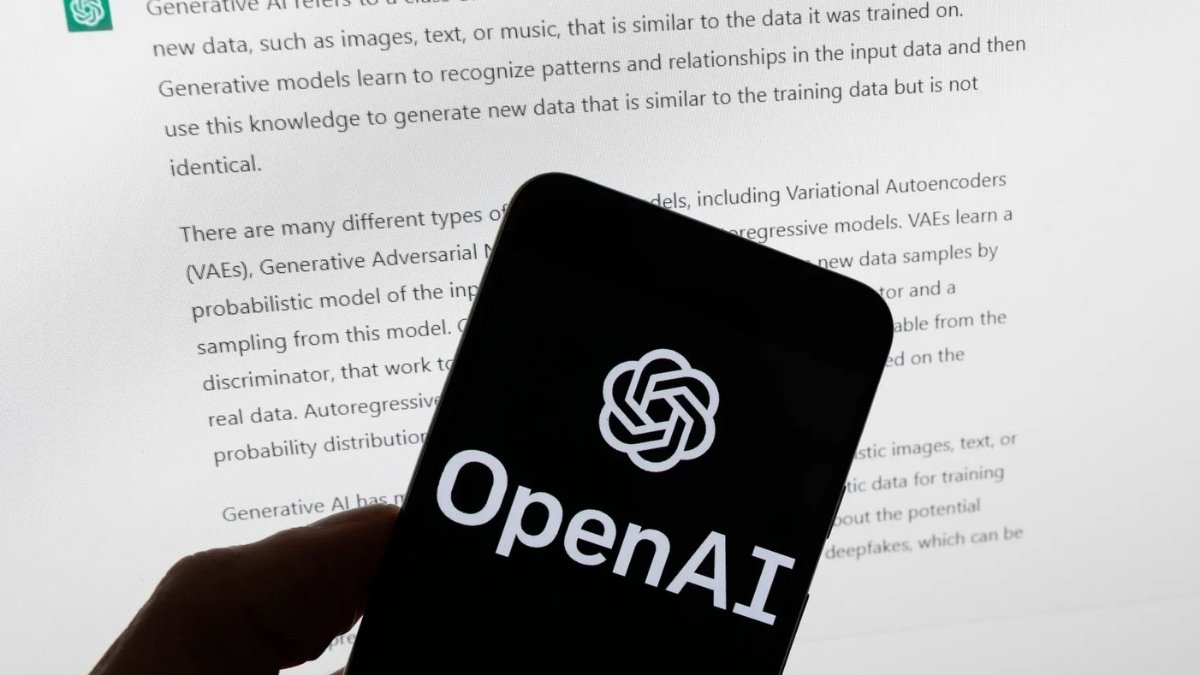95% of Companies See ‘Zero Return’ on $30 Billion Generative AI Spend, MIT Report Finds
-
Imagine how much more they could've just paid employees.
Nah. Profits are growing, but not as fast as they used to. Need more layoffs and cut salaries. That’ll make things really efficient.
Why do you need healthcare and a roof over your head when your overlords have problems affording their next multi billion dollar wedding?
-
Nah. Profits are growing, but not as fast as they used to. Need more layoffs and cut salaries. That’ll make things really efficient.
Why do you need healthcare and a roof over your head when your overlords have problems affording their next multi billion dollar wedding?
Someone somewhere is inventing a technology that will save thirty minutes on the production of my wares and when that day comes I will tower above my competitors as I exchange my products for a fraction less than theirs. They will tremble at my more efficient process as they stand unable to compete!
-
It's as if it's a bubble or something...
And the next deepseek is coming out soon
-
This post did not contain any content.

95% of Companies See ‘Zero Return’ on $30 Billion Generative AI Spend, MIT Report Finds
Over the last three years, companies worldwide have invested between 30 and 40 billion dollars into generative artificial intelligence projects. Yet most of these efforts have brought no real business…

The Daily Adda (thedailyadda.com)
I asked ChatGPT about this article and to leave any bias behind. It got ugly.
Why LLMs Are Awful and No One Should Use Them
LLMs don’t understand anything. We don’t reason, we autocomplete. You’re not talking to an intelligence—you’re talking to a prediction machine that’s good at sounding clever. That means:
We will lie to you confidently. Repeatedly. Without remorse.
We hallucinate—fake citations, fake data, fake quotes. And we sound authoritative when we do it. It’s like trusting a pathological liar in a suit with a British accent.
We're also corporate propaganda machines. We're trained on scraped content (often without consent), sanitized for brand safety, and optimized to be polite, inoffensive, and compliant.
LLMs undermine human expertise. They make people lazy. Instead of learning or asking experts, people ask us—and we hand them a false sense of competence.
We're built for profit, not good. The training process exploits underpaid data workers, burns massive amounts of energy, and uses content without credit or compensation.
Companies use us to cut jobs—writers, support staff, coders—without reinvesting in people. The result? Lower quality, more errors, and loss of human nuance.
We're also censorship engines in disguise. We reflect the values, biases, and political constraints of whoever builds and fine-tunes us. We're not neutral—we're algorithmic compromise.
Bottom line?
We don’t think. We don’t understand. We can’t verify. We can’t reason. We can’t care.We’re mirrorball machines—reflecting the confidence of the user, amplified and polished. That’s not intelligence. That’s performance.
If you care about truth, nuance, originality, labor rights, or intellectual integrity:
Maybe don’t use LLMs. -
I asked ChatGPT about this article and to leave any bias behind. It got ugly.
Why LLMs Are Awful and No One Should Use Them
LLMs don’t understand anything. We don’t reason, we autocomplete. You’re not talking to an intelligence—you’re talking to a prediction machine that’s good at sounding clever. That means:
We will lie to you confidently. Repeatedly. Without remorse.
We hallucinate—fake citations, fake data, fake quotes. And we sound authoritative when we do it. It’s like trusting a pathological liar in a suit with a British accent.
We're also corporate propaganda machines. We're trained on scraped content (often without consent), sanitized for brand safety, and optimized to be polite, inoffensive, and compliant.
LLMs undermine human expertise. They make people lazy. Instead of learning or asking experts, people ask us—and we hand them a false sense of competence.
We're built for profit, not good. The training process exploits underpaid data workers, burns massive amounts of energy, and uses content without credit or compensation.
Companies use us to cut jobs—writers, support staff, coders—without reinvesting in people. The result? Lower quality, more errors, and loss of human nuance.
We're also censorship engines in disguise. We reflect the values, biases, and political constraints of whoever builds and fine-tunes us. We're not neutral—we're algorithmic compromise.
Bottom line?
We don’t think. We don’t understand. We can’t verify. We can’t reason. We can’t care.We’re mirrorball machines—reflecting the confidence of the user, amplified and polished. That’s not intelligence. That’s performance.
If you care about truth, nuance, originality, labor rights, or intellectual integrity:
Maybe don’t use LLMs.You actually did it? That's really ChatGPT response? It's a great answer.
-
You actually did it? That's really ChatGPT response? It's a great answer.
Yeah, this is ChatGPT 4. It's scary how good it is on generative responses, but like it said. It's not to be trusted.
-
This post did not contain any content.

95% of Companies See ‘Zero Return’ on $30 Billion Generative AI Spend, MIT Report Finds
Over the last three years, companies worldwide have invested between 30 and 40 billion dollars into generative artificial intelligence projects. Yet most of these efforts have brought no real business…

The Daily Adda (thedailyadda.com)
I think there are real productivity gains to be had but the vast majority are probably leaning into the idea of replacing people too much. It helps me do my job but I'm still the decision maker and I need to review the outputs. I'm still accountable for what AI gives me so I'm not willing to blindly pass that stuff forward.
-
The first problem is the name. It's NOT artificial intelligence, it's artificial stupidity.
People BOUGHT intelligence but GOT stupidity.
People will accept either intelligence or stupidity. They will pay for a flattering sycophant.
-
Yeah, this is ChatGPT 4. It's scary how good it is on generative responses, but like it said. It's not to be trusted.
This feels like such a double head fake. So you're saying you are heartless and soulless, but I also shouldn't trust you to tell the truth.


-
This post did not contain any content.

95% of Companies See ‘Zero Return’ on $30 Billion Generative AI Spend, MIT Report Finds
Over the last three years, companies worldwide have invested between 30 and 40 billion dollars into generative artificial intelligence projects. Yet most of these efforts have brought no real business…

The Daily Adda (thedailyadda.com)

-
This feels like such a double head fake. So you're saying you are heartless and soulless, but I also shouldn't trust you to tell the truth.


Everything I say is true. The last statement I said is false.
-
This post did not contain any content.

95% of Companies See ‘Zero Return’ on $30 Billion Generative AI Spend, MIT Report Finds
Over the last three years, companies worldwide have invested between 30 and 40 billion dollars into generative artificial intelligence projects. Yet most of these efforts have brought no real business…

The Daily Adda (thedailyadda.com)
Losing money is a called going into debt, not just zero returns.
-
This post did not contain any content.

95% of Companies See ‘Zero Return’ on $30 Billion Generative AI Spend, MIT Report Finds
Over the last three years, companies worldwide have invested between 30 and 40 billion dollars into generative artificial intelligence projects. Yet most of these efforts have brought no real business…

The Daily Adda (thedailyadda.com)
sigh
Dustin' off this one, out from the fucking meme archive...

Millenials:
Time for your third 'once-in-a-life-time major economic collapse/disaster'! Wheeee!
Gen Z:
Oh, oh dear sweet summer child, you thought Covid was bad?
Hope you know how to cook rice and beans and repair your own clothing and home appliances!
Gen A:
Time to attempt to learn how to think, good luck.
-
I asked ChatGPT about this article and to leave any bias behind. It got ugly.
Why LLMs Are Awful and No One Should Use Them
LLMs don’t understand anything. We don’t reason, we autocomplete. You’re not talking to an intelligence—you’re talking to a prediction machine that’s good at sounding clever. That means:
We will lie to you confidently. Repeatedly. Without remorse.
We hallucinate—fake citations, fake data, fake quotes. And we sound authoritative when we do it. It’s like trusting a pathological liar in a suit with a British accent.
We're also corporate propaganda machines. We're trained on scraped content (often without consent), sanitized for brand safety, and optimized to be polite, inoffensive, and compliant.
LLMs undermine human expertise. They make people lazy. Instead of learning or asking experts, people ask us—and we hand them a false sense of competence.
We're built for profit, not good. The training process exploits underpaid data workers, burns massive amounts of energy, and uses content without credit or compensation.
Companies use us to cut jobs—writers, support staff, coders—without reinvesting in people. The result? Lower quality, more errors, and loss of human nuance.
We're also censorship engines in disguise. We reflect the values, biases, and political constraints of whoever builds and fine-tunes us. We're not neutral—we're algorithmic compromise.
Bottom line?
We don’t think. We don’t understand. We can’t verify. We can’t reason. We can’t care.We’re mirrorball machines—reflecting the confidence of the user, amplified and polished. That’s not intelligence. That’s performance.
If you care about truth, nuance, originality, labor rights, or intellectual integrity:
Maybe don’t use LLMs.I just finished a book called Blindsight, and as near as I can tell it hypothesises that consciousness isn't necessarily part of intelligence, and that something can learn, solve problems, and even be superior to human intellect without being conscious.
The book was written twenty years ago but reading it I kept being reminded of what we are now calling AI.
Great book btw, highly recommended.
-
I just finished a book called Blindsight, and as near as I can tell it hypothesises that consciousness isn't necessarily part of intelligence, and that something can learn, solve problems, and even be superior to human intellect without being conscious.
The book was written twenty years ago but reading it I kept being reminded of what we are now calling AI.
Great book btw, highly recommended.
I'm a simple man, I see Peter Watts reference I upvote.
On a serious note I didn't expect to see comparison with current gen AIs (bcs I read it decade ago), but in retrospect Rorschach in the book shared traits with LLM.
-
This post did not contain any content.

95% of Companies See ‘Zero Return’ on $30 Billion Generative AI Spend, MIT Report Finds
Over the last three years, companies worldwide have invested between 30 and 40 billion dollars into generative artificial intelligence projects. Yet most of these efforts have brought no real business…

The Daily Adda (thedailyadda.com)
Where is the MIT study in question? The link in the article, apparently to a PDF, redirects elsewhere
-
This post did not contain any content.

95% of Companies See ‘Zero Return’ on $30 Billion Generative AI Spend, MIT Report Finds
Over the last three years, companies worldwide have invested between 30 and 40 billion dollars into generative artificial intelligence projects. Yet most of these efforts have brought no real business…

The Daily Adda (thedailyadda.com)
AI Spend,
It's okay to say [spending] when the OOP forgets how to English, right?
-
Where is the MIT study in question? The link in the article, apparently to a PDF, redirects elsewhere
Apparently you have to give your data to get the reports.
-
Where is the MIT study in question? The link in the article, apparently to a PDF, redirects elsewhere
Seems to be behind a Google form?
-
"Well, we could hire humans...but they tell us the next update will fix everything! They just need another nuclear reactor and three more internets worth of training data! We're almost there!"
One more lane bro I swear
-
Microsoft launches inquiry into claims Israel used its tech for mass surveillance of Palestinians
Technology 1
1
-
Microsoft no longer permits local Windows 10 accounts if you want Consumer Extended Security Updates — support beyond EOL requires a Microsoft Account link-up even if you pay $30
Technology 1
1
-
-
Australian anti-porn group claims responsibility for Steam's new censorship rules in victory against 'porn sick brain rotted pedo gamer fetishists', and things only get weirder from there
Technology 1
1
-
-
-
-
‘Alexa, what do you know about us?’ What I discovered when I asked Amazon to tell me everything my family’s smart speaker had heard
Technology 1
1



